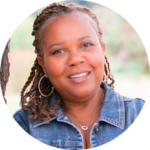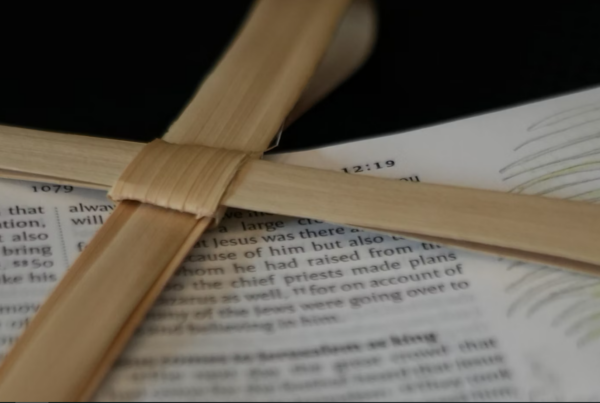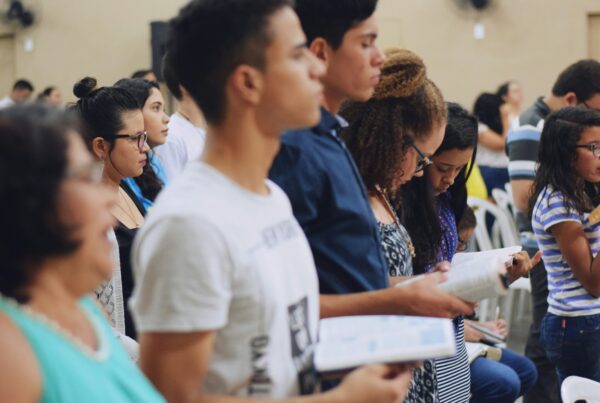The Bible has a lot to say about justice and suffering. Just as Scripture speaks to every part of our lives, it speaks to the injustices that surround us. God has a heart for justice, and justice work is integral to God’s calling for church leaders.
This material was originally recorded as part of the Renovations Project. It has been lightly edited and condensed for clarity.
Justice is part of the gospel
Too often, when a church or a pastor talks about justice, they decide, “Okay, now I’m going to talk about a justice thing,” as if we’re going to step away from our usually recorded program of Scripture and the gospel to talk about justice. That is deliberately separating it from what is the usual teaching of the church. And it reinforces the idea that justice is a separate thing from the gospel, which goes against what the person is saying, that it’s not separate. They’re saying that justice is part of the gospel, and yet they have separated it to talk about it.
I grew up in a church where no matter who was talking, whatever preacher was presenting, there’s a text and we’re going to go through this text, and we’re talking about what does the Scripture say? But in the application of the text and in the examples that are given, we’re going to relate that to what is happening in the world and what is happening in the lives of people. The Word is applicable to every area of my life. It’s applicable to the fact that my kids are in a school that is not educating them. Or it’s applicable to the fact that we don’t have adequate healthcare. These things that I’m talking about in the Word are lived out in the world every day.
But often, there is the mistake of setting things aside to talk about something else. I was involved in music and the arts, and anytime somebody would say, “Oh, we’re going to do something fun now and sing a gospel song.” We do that unintentionally when we pull the justice issue out of the regular context of Scripture.
I think that Dr. King’s whole life was that he was a Baptist preacher first and foremost. He was a pastor. That is who he was, whether he was on the pulpit of Ebenezer Baptist Church in Atlanta or whether he was marching across the bridge in Selma, he was still Pastor Dr. Martin Luther King. He was still exercising what he was preaching the rest of the time—these things were never separate. And that whole movement came out of the church and out of that understanding of the gospel as this living texts that applies to all people in every area of life. That was what was modeled by him and all the people that worked with him.
I think we have, many times, tried to separate him from the church and make him something else. He was a good speaker. He was a political activist. He was a justice worker. No; he was a preacher. He was a pastor. And he was bringing his message to the world. Why is that uncomfortable to acknowledge and to see?
When I think about what it looks like for the pastor to join that movement now, it’s to say, how could it ever be separate? Do Black lives not matter in the church? Do Black lives not matter to God? Were Black lives not included in all of the historic texts of Scripture? Was God never thinking of us? It’s in the way that people think something was said to men and then, “Oh, oh yeah, and women,” as if that was an added add-on, as if women were not in the heart of God from the beginning. I’ve said, as if God doesn’t stand over his daughters in the same way that he does over his sons with that same expectation, that of course Black lives matter. How can I believe in who Jesus is and not believe that?
If that is the truth, then why wouldn’t the church be engaged in that work? If you are saying Black souls matter, then you must also believe that Black lives matter. Or are you saying Black lives only matter after life? My soul matters after I’m dead, but my life right now, which includes my soul, does not matter? That can’t be. That is hypocrisy.
It is inviting pastors into what they are saying they already believe and to engage in a work that supports that. We cannot allow that truth to be politicized. No, that is a message of Scripture. Every life matters. The reason why we have to say Black lives matter is because so much has been communicated to the contrary. The church should be first to stand up and say, “No, Jesus died for these lives, too. And so, because of that, we stand with you.”
Women in ministry
There has always been a place for women to lead in the church. It has not always looked the same, but the church has never existed without women. The world doesn’t exist without women. From the beginning, when God said, “This is good,” women were included. Women were not an afterthought. Women were a deliberate, creative act of God. And women were needed. Adam needed Eve. God gave what was needed. The world needed Eve, so God gave what was needed. The church needed Eve, and God has given what was needed.
Eve was not another Adam. I think sometimes women believe we have to somehow be an imitation of man. Women are not; women are unique, creative, powerful beings made in the image of the Father. I believe that in hearing God and knowing what is it that God has placed me here to do, and I decided to be obedient to that with all my heart. When I felt called to preach and to believe the prophetic gift that God had given me, I did not feel compelled to convince other people of the call or of my legitimacy. My yes was to the Lord. So, I said, “Lord, I’ll say yes to you, and wherever you open the door, I’ll walk through.” I try to walk through those doors without apology.
So, when there are opportunities to preach, I’m not going to say anything about being a woman doing it. I’m just going to preach. I’m just going to say, what does this say? What does the Word say? What is the message? Lord, what is it that you have to say to this people? And they can evaluate whether or not what I have given is sound doctrine. They can evaluate whether or not this bears truth, that the spirit in them gives witness to that. I am going to be obedient to what God has called me to do. And that’s what I would encourage women to do: do what it is that God called you to do. Stop waiting for permission.
Using your voice for justice
Justice is part of the gospel, and church leaders need to speak out for justice. When it comes to refining your voice, these are three things you should have in your toolbox.
First, community is very important. Speaking into a vacuum is not helpful for anyone. There has to be other people who you trust and respect in your life that you keep around to be able to say, “This is what I think. This is what I hear. That may be true, but this may not be exactly right.” You need people to make you think, and to question, and to go back before God and ask if you heard God correctly. You need people to make you go deeper and to push you to grow. If you don’t have those people in your life, if all you have is cheerleaders, people that just say, “Yay, you’re great! Yay, you’re good! Rah, rah, rah!” that make you feel good temporarily, but they are not necessarily making you be good? You need both. You need the people who will challenge your thinking because I think that community is really important.
Secondly, you must have the desire to learn, to always be looking for more information to challenge your thoughts that you think… the things you know to be true. You have to read the books, you have to do the work, and you have to always look to refine your gifts and to be better.
Thirdly, you need rest. You need to have space in your life to stop doing. So much comes in stillness and solitude, so much comes when we cease from doing. We need to have those spaces where we can hear, and we need to have them regularly, not just the annual retreat, but as a regular rhythm in our lives. We need them weekly, monthly, quarterly; there have to be these built-in places where we stop and can be still and quiet to hear not only our own thoughts, but also to hear the voice of God.
Encouragement for tired leaders
Seeking justice is central to God’s calling for us, yet working for justice can be exhausting. Here is some encouragement and advice for tired church leaders.
As I have said before about church leaders who are facing difficulty, I wanted to speak to the people who were really struggling. They were doing this really important thing, but they were getting tired, and I wanted to give something that was an encouragement to keep going. I wanted to acknowledge that this is hard and trying, and you may feel opposition and challenge, but you still need to do it. It’s not going to always go the way you want, and you will not always be appreciated, but you still need to do it. And you need to know that the power of God in heaven is with you.
I also wanted to say that you can’t do it without the power of heaven. You are tired because you’re trying to do it without the power of heaven. The systems that are in place have been set up by supernatural evil, powers, and principalities. We think that we’re going to show up because we’re smart, and talented, and educated and somehow just dismantle all of that by ourselves. No. These things that are made by the principalities and powers of evil have to be destroyed through the supernatural power of God. We can tap into that power; we have to be deliberate in seeking God and going to him on a regular basis so that we can hear what it is we need to do, so we can be strengthened to do it. Trying to do it on our own is what is making us tired.
And that is what the book is about. Bread for the Resistance is 40 devotions. I encourage you to give 40 days to the Lord, by telling him that it is hard, you are tired, and you need his help in doing what he called you to do. Because I don’t believe we can do it without him. And I wanted to inspire people to spend that time every day.
Related: How the Church Can Do a Better Job Preparing People for Difficulty

Renew your church’s imagination for ministry
The Renovations Project helps leaders learn, together.
- Thought-provoking masterclasses
- Personalized coaching
- Immersive visit to a ministry innovation hub
- Ministry innovation grants up to $5,000

Donna Barber
Donna Barber is the executive director and co-founder of The Voices Project, a national network for training and promoting leaders of color. She has been an educator, trainer, and coach for youth in urban areas for more than 25 years. Donna is author of Bread for the Resistance: 40 Devotions for Justice People. She participated in listening sessions about innovation hosted by the Reformed Church in America.



